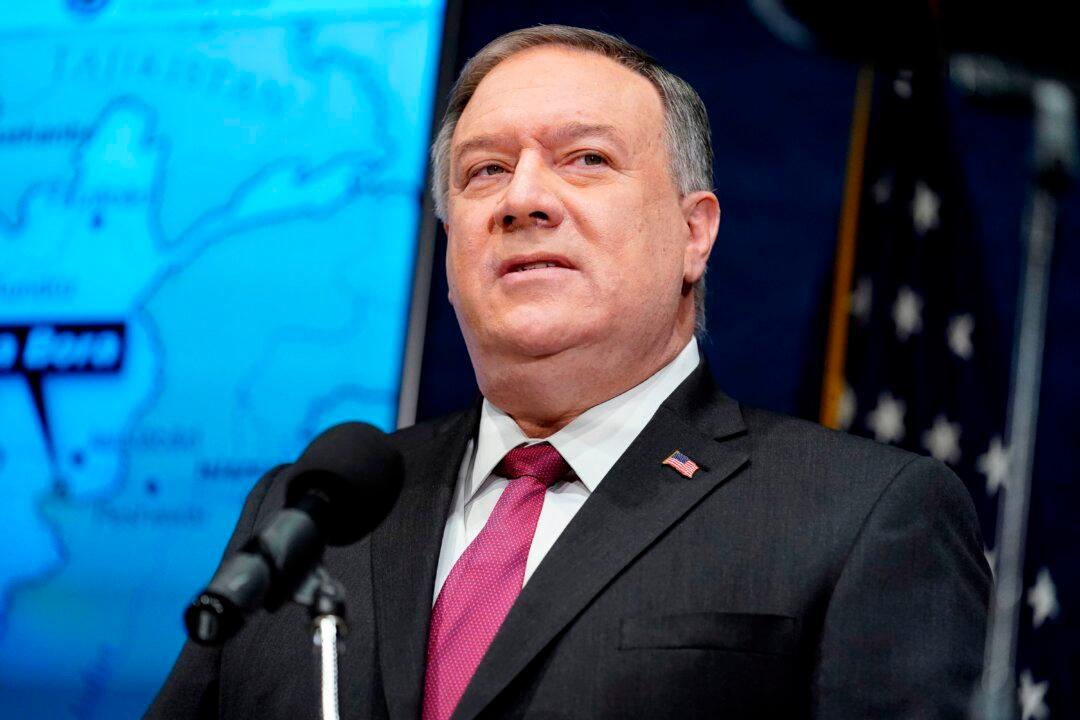Former U.S. Secretary of State Mike Pompeo on Feb. 18 said he is confident that no one will ever again be able to deny the threat that the Islamic Republic in Iran presents Israel, the Gulf nations, and the United States, following the “historic” achievements for the region made under the Trump administration.
Pompeo made the remarks while accepting a “Champion of International Human Rights” award at the ninth Annual Champions of Jewish Values International Awards Gala, held by the World Values Network on Thursday in honor of Black history month. It is the first award of its kind.





